- Learning time
- 20 minutes
- First play time
- 30 minutes
Dokojong
Designed by: Hayashi Shiina,Jun Sasaki
To curry favour with the king, up to five ministers of the court – players – try to make friends with his dogs. But this means stealing them away in a kind of canine Stockholm-Syndrome undertaking, and you don’t want to be discovered too soon: the dog won’t like you. Time it right, and the king will see the dog loves you and – presumably – took it upon itself to follow you around the palace. Or something.
Dokojong from Oink Games is classic Oink: a quirky theme, intriguing mechanics, oddball scoring. In the middle of the playing area are five doors, representing hidden places around the palace. Players shuffle their tiles and place them facing themselves, so nobody else can see where their one dog tile is nestled amongst four X tiles. Then the game begins with the starting player choosing one door to open: flipping the door the other way up.
From here play moves around the table with each player basically having four choices. They can give a thumbs-up saying (or pretending: Dokojong has room for bluff) they’re okay with that door being opened. If all players agree to this, then everyone reveals tiles matching the number of the door or doors: you don’t want to reveal your dog, because you’ll score a point if you manage to reveal three X tiles, and in Dokojong you only need two points to win the game.
The other things are you can open an extra door if there are two or more remaining. Or you can close all one (or two) open doors and open two (or three) others instead. Or finally you can accuse the leader: who is the last person who either opened doors or accused someone. When accusing you tell them to reveal a single tile of your choice: if you successfully find a dog, you get to reveal an X tile of your choice: the goal being, remember, to reveal three X tiles before your dog is discovered.
If you’ve been successfully accused or otherwise forced to reveal your dog, you lose any hitherto revealed X tiles and shuffle your tiles up randomly before the round resets. You also lose a point – lose three points and you’re out of the game! The first player or player to gain two points (gained and lost points are tracked separately) wins.
The guru's verdict
-
Take That!
Take That!
You'll be targeted for sure, but it's more deduction than combat.
-
Fidget Factor!
Fidget Factor!
Low, once you've gotten your head around the whimsical rhythms and quirky nature of the game.
-
Brain Burn!
Brain Burn!
Low to moderate. It's not a memory game as such, but it doesn't hurt to keep track of what players are doing.
-
Again Again!
Again Again!
Dokojong doesn't vary wildly from play to play, but the deduction is never solved and that aspect remains fun

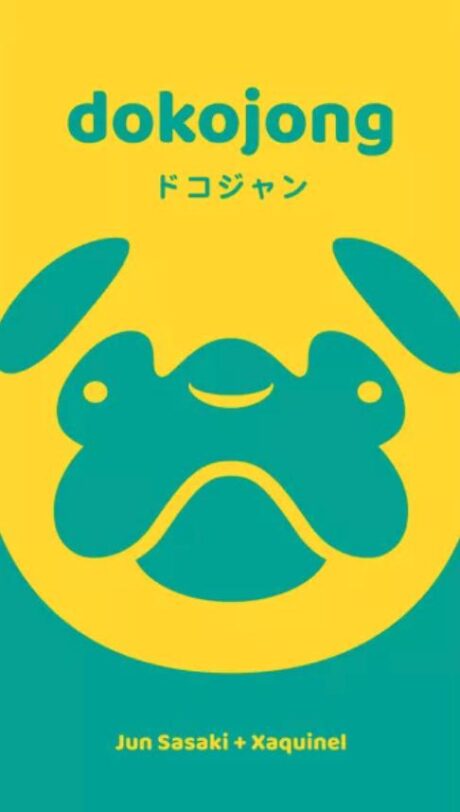

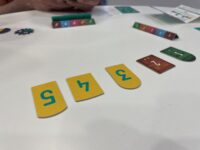
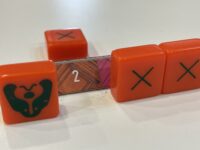
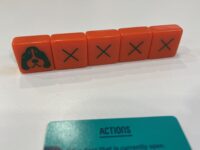






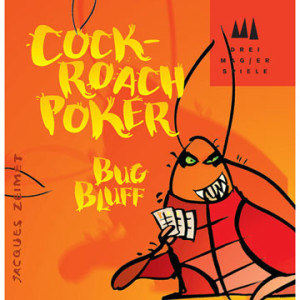

Sam says
Currently hard to find in the UK, but with greatest respect to Dokojong I don't think that's a great tragedy. It's a perfectly reasonable game of deduction, filtered through Oink Games' classic gauze of wonkiness and graphically-pleasing components, but I think the games we've linked to on the right feel both more accessible and more revisitable. Not to run Dokojong down; I've enjoyed playing it and would happily do so again. But presented with a choice of Oinks, this would be lower on my list than others.